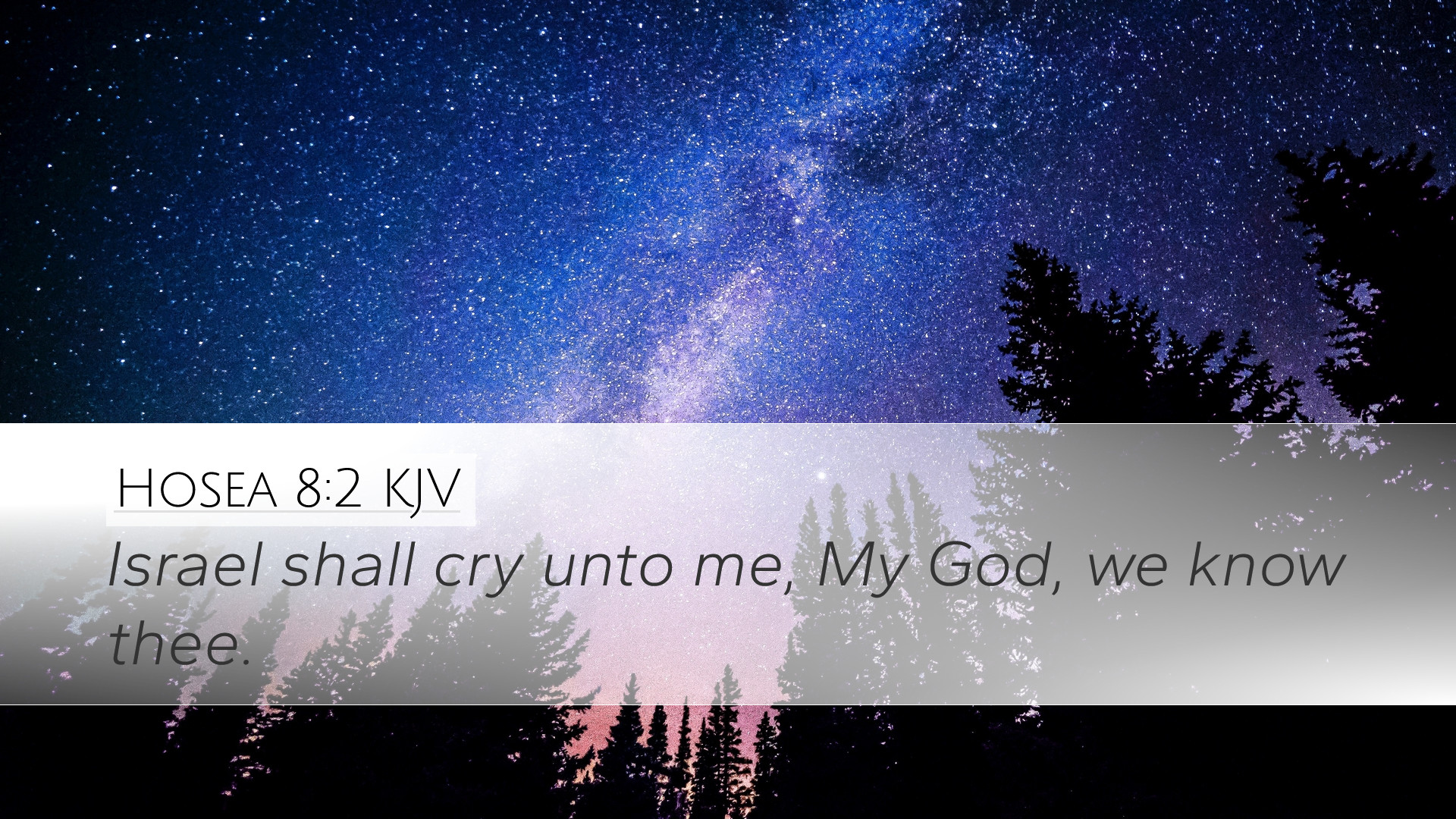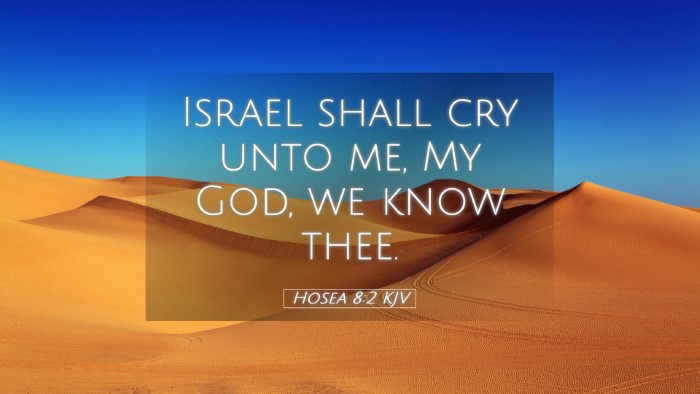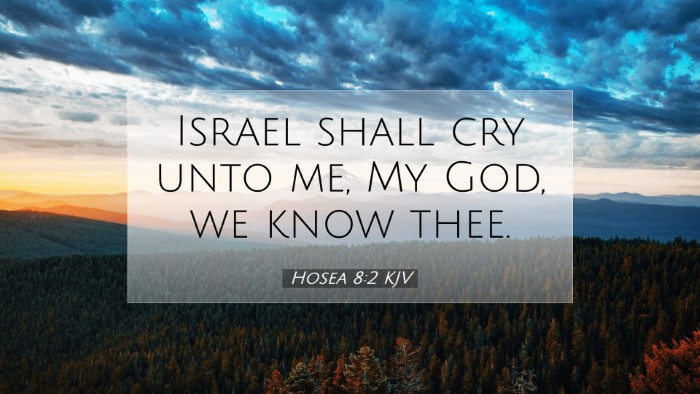Old Testament
Genesis Exodus Leviticus Numbers Deuteronomy Joshua Judges Ruth 1 Samuel 2 Samuel 1 Kings 2 Kings 1 Chronicles 2 Chronicles Ezra Nehemiah Esther Job Psalms Proverbs Ecclesiastes Song of Solomon Isaiah Jeremiah Lamentations Ezekiel Daniel Hosea Joel Amos Obadiah Jonah Micah Nahum Habakkuk Zephaniah Haggai Zechariah MalachiHosea 8:2
Hosea 8:2 KJV
Israel shall cry unto me, My God, we know thee.
Hosea 8:2 Bible Commentary
Commentary on Hosea 8:2
Verse Reference: "Israel will cry out to me, 'My God, we acknowledge you!'" - Hosea 8:2 (NIV).
Introduction
The book of Hosea is a poignant prophetic text emphasizing Israel's infidelity and impending judgment while also conveying the possibility of repentance and restoration. Hosea 8:2 stands as a crucial verse that captures the essence of Israel's relationship with God, illustrating the spiritual state of a nation that acknowledges God superficially while engaging in idolatry and sin.
Contextual Background
Hosea prophesied in a time of great moral and spiritual decline among the Northern Kingdom of Israel. The people had turned away from Yahweh, worshipping Baal and other false gods. The historical backdrop is essential in understanding the weight of Hosea’s message and the urgency of his warnings.
Exegesis of Hosea 8:2
This verse reflects a tone of irony and deep sadness. The phrase "Israel will cry out to me" suggests a recognition of God, yet it is juxtaposed with their actions of rebellion and sin against Him. The acknowledgment is hollow, as it is driven by circumstances rather than true repentance.
Key Themes
- The Illusion of Repentance: Many of the Israelites believed they could call upon God while continuing in their iniquity. Matthew Henry emphasizes that their cries are mere tokens of acknowledgment, not from a place of genuine heart change.
- The Nature of True Worship: Albert Barnes points out that true worship involves fidelity to God and His commands. This verse demonstrates how the people had corrupted their worship by mixing it with practices reflective of the surrounding pagan cultures.
- The Consequences of Rebellion: Adam Clarke elucidates that God’s response to Israel’s cry would be one of judgment rather than blessing due to their persistent unfaithfulness.
Theological Insights
Hosea 8:2 speaks to the nature of God’s relationship with His people. The verse challenges believers to reflect on the authenticity of their faith and worship practices:
God's Holiness vs. Human Inconsistency
The verse highlights a crucial aspect of God's holy nature. He cannot abide with sin, and the hollow cries of Israel indicate a gross misunderstanding of who God is. True acknowledgment of God requires a turning away from sin, as emphasized in the broader context of the biblical narrative.
Grace and Judgment
This verse also introduces a tension found throughout Scripture: God’s grace versus His judgment. While God desires that none should perish, He is also a God of justice who cannot overlook sin. Clarke reminds us that although Israel was quick to inquire of God, their hearts were far from Him.
Applications for Today
As we draw from Hosea 8:2, several applications emerge for contemporary believers:
- The Need for Authenticity: This verse is a call for introspection. Are we acknowledging God only in theory while neglecting to live out His commandments? True faith must be coupled with obedience.
- Warning Against Syncretism: The Israelites blended worship of Yahweh with idolatrous practices. Today, believers must guard against blending secular values with biblical faith, ensuring their worship remains pure.
- Recognizing the Call to Repentance: Hosea’s message is timeless. Just as Israel was called to repent, the church today must engage in sincere repentance and seek a deeper relationship with God, moving beyond superficial acknowledgment.
Conclusion
Hosea 8:2 encapsulates a critical warning for the people of Israel—one that resonates through the ages to today’s church. The recognition of God must translate into a genuine, transformed life. Through this analysis, we are reminded that any cry to God must come from a heart aware of its sinfulness and a desire for true alignment with His will. Therefore, as scholars, pastors, and students of the Bible, let us heed the call of Hosea, pursuing a faith that is both sincere and vigorous, acknowledging God not just in words but through our lives.


